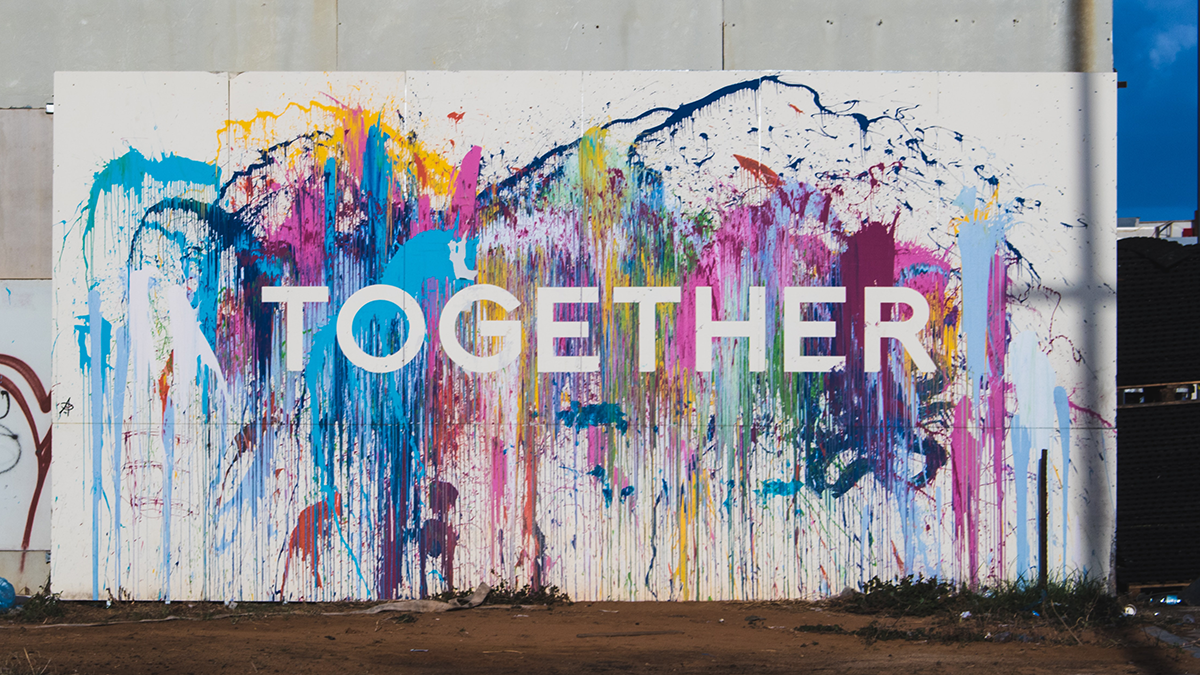The big opportunity in a divided world: creating community

It’s not every day you have a chat with the man who invented the internet while queuing for your sandwich in Pret – but with WIRED Smarter taking place just around the corner, it's not entirely unexpected.
•••
(Header photo: Nicole Baster on Unsplash)
The brilliant event was back after two years of going virtual, and the content of the opening speech was what you might expect to hear at a time when the world feels disrupted – a bleak list of the challenges facing businesses today – from inflation, to economic uncertainty, to a lack of talent, to supply chain issues… the list went on.
But there was light at the end of the tunnel. The big theme that emerged from the many talks was the power of community, collaboration, and joined-up innovation.
Sir Tim Berners-Lee, a founding father of the World Wide Web, kicked off the theme by looking back at his vision for what he created back in 1989 – an idea based on linking and sharing information to enable collaboration across the world.
That vision, of course, is now in danger of being clouded by large businesses individually harvesting data and keeping it behind walls – a sort of anti-collaboration coalition.
Breaking down the (internet) walls
The antidote, says Tim, is the use of Solid. A platform that means data can be owned by the individual to benefit, not exploit them, and ultimately lead to a more open web 3.0 that will enable the ideas that other speakers discussed throughout the day.
Dr. Suzie Sheehy, a particle physicist who was involved in building the large hadron collider, agreed the principles of collaboration that have always been shown to be so essential within science, will be key for businesses to adopt and foster moving forward.
Those who succeed will embrace shared insight and creative development – and build a culture where success comes from “having a prepared mind, asking good questions and most importantly building a culture of curiosity” – especially in a new, hybrid world.
The cultural shift to collaboration
Culture is talked about a lot, but in the frame of fostering community and collaboration, creating the right culture within your business should be top of the agenda in the boardroom. Part of this, says Helen Tupper and Sarah Ellis, founders of Amazing If, is “changing how we look at ‘jobs’ within an organisation – focusing on people’s skills not titles.” This will lead to a community where everyone has permission to explore, to prod and change an organisation, for the better.
And we do need a cultural shift more than ever. A well-timed Guardian article released on the morning of the event talked about the growing epidemic of burnout – caused by the overuse of smartphones, the lagging effects of the pandemic, and now the crushing weight of a cost-of-living crisis chipping away at people’s sleep.
The result? A mental health crisis in the workplace.
The internal network effect
The answer, according to Sharmadean Reid, is for businesses to double down on community and collaboration – moving away from internal communications (single channel) to building internal networks (multi-channel) where staff can build better relationships and friendships in the workplace to help discuss and stave off issues facing them – and flourish around their interests.
But it’s not just the ‘soft side’ of business that community and collaboration will benefit from – it’s the future of commerce as well. Sujata Bhatia, COO at Monzo, talked about how their focus on Customer Connections and building a network of customers who they learn from and grow with has been central to their success. According to Deann Evans at Shopify, the changing shopping habits of customers mean that shopping will also be community driven (just look at the news from TikTok today).
What does this mean for business, and what can you do?
Not responding to a world gone wonky doesn’t seem like an option for businesses. Tapping into our instinctual nature to want to gather and collaborate as communities is the right step forward. But it’ll need an incremental change.
Werner Vogels, CTO at Amazon, says the way forward is experimentation: “Experiment, fail, succeed but try everything.”
Whether that’s a new way to build communities among staff, customers, or even within your industry – those who experiment will be the ones who succeed.
Werner finished by saying that everyone should follow John Lennon’s lead and ‘imagine’. I think businesses should follow his lead and ‘come together, right now’.
•••
(Header photo: Nicole Baster on Unsplash)

